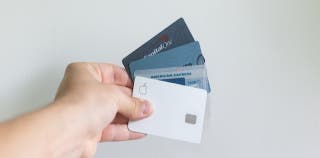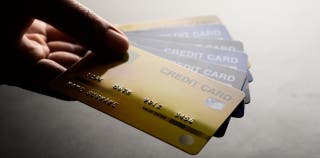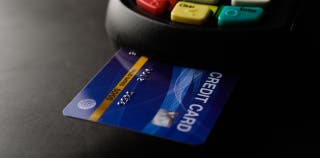Is it good to have multiple credit cards?
Having multiple credit cards can be beneficial, as it allows access to different types of benefits.
For example, it could make sense to sign up for a credit card with excellent consumer protections with the goal of using it for large purchases. However, you could also sign up for a travel credit card that offers perks like a fee credit for Global Entry or TSA Precheck membership, or airline lounge access.
Maximizing rewards on all purchases can be achieved by utilizing multiple credit cards. For instance, obtaining cards with bonus rewards for frequently used categories and pairing them with a card that offers the highest cashback rate for remaining purchases can optimize rewards earned.
Finally, opening new credit cards can help you earn generous sign-up bonuses or welcome offers. It is more profitable to open a few new cards each year than to stick with one established card, so that’s another argument for signing up for the best new card offers you come across. While it might sound tempting to apply for every new card you come across, there are drawbacks to opening multiple credit cards that you should be aware of.
Issues with having too many credit cards
While juggling more than one credit card can help you access more rewards and benefits over time, there are several risks you’ll encounter if you try it.
For example, having several credit cards can mean having multiple credit card payment due dates to keep track of. If you get confused or mix up cards and due dates, you can accidentally make a late payment and cause considerable damage to your credit score in the process.
Having too many cards also makes it easier to rack up long-term credit card debt, particularly if you’re always trying to meet the minimum spending requirement to earn a credit card sign-up bonus. And since the average credit card interest rate is approaching 19%, carrying debt on a credit card can become expensive in a hurry.
Does having more credit cards help or hurt your credit score?
Having more credit cards can either help or hurt your credit score, depending on how you use them.
On one hand, having multiple credit cards can help increase your credit score by diversifying your credit mix. Creditors like to see that you can handle different types of credit responsibly.
On the other hand, having too many credit cards can hurt your credit score if you are not managing them responsibly. Carrying high balances on multiple cards can lead to high credit utilization, which can lower your credit score. Additionally, applying for too many credit cards in a short time can also negatively impact your credit score as it can be seen as a sign of financial stress.
It’s important to use credit cards responsibly by keeping balances low, making payments on time, and not applying for too many credit cards at once. This way you can improve your credit score over time. Understanding what factors affect your credit score can help you.
How many credit cards are too many?
The ideal number of credit cards to have can vary from person to person and depends on their financial situation and goals. However, having more than 3-4 credit cards can be considered too many for some people.
This is because having too many credit cards can make it hard to keep track of balances and payments, and can also increase the risk of falling into debt. Also, it can appear to lenders that you’re overextending yourself financially and therefore, lower your credit score.
Having too many credit cards can be detrimental for several reasons:
It’s important to keep a balance and have only the credit cards that you need and can manage responsibly.
How many credit cards should I have?
While you can use any system you want to find the ideal number of cards, we suggest basing your decision on the following:
- Your ability to track spending and avoid long-term credit card debt
- Your discipline when it comes to paying all your bills on time
- Willingness to (or not to) maximize rewards on purchases or access different credit card benefits
- Whether you need to open a new card to access special benefits right now, such as a balance transfer offer or travel insurance perks
- How much work you’re willing to put in to earn credit card sign-up bonuses
How many credit cards should I have to build my credit?
When it comes to building your credit with a credit card, having multiple cards can actually help.
This is based on the fact that credit card companies may only report your payments to one or two credit bureaus instead of all three. By having multiple credit cards from different issuers like American Express, Capital One, Chase, and Discover, you can increase your overall credit reporting to all three credit bureaus — Experian, Equifax, and TransUnion.
That said, having one credit card can still help you build credit, and it’s definitely better than having no credit cards at all. Also note that you can build credit with other types of credit you have access to, such as a mortgage, an auto loan, or a personal loan.
How many credit cards do most people have?
According to a 2021 report from Experian, the average consumer had slightly under four credit cards (an average of 3.84 accounts) at the last count. However, individuals in some states had more credit cards overall, and some age groups tended to have more cards in their wallets.
New Jersey residents had the most cards on average at 4.54, and baby boomers (ages 56 to 74) had more cards than other generations at 4.61, on average.
How often should you apply for a credit card?
There are a few different schools of thought when it comes to applying for new credit cards and timing applications.
For example, some experts believe you should only apply for a new card if you want or need one for a specific purpose, such as accessing a new rewards program or needing a balance transfer card. Others believe you can apply for as many new cards as you want as long as you keep any impact on your credit score at a minimum.
As a general rule of thumb, however, you should strive to limit credit card applications to once every 90 days. This allows the negative impacts of hard inquiries from new credit to lessen over time, and it ensures you won’t have too many new hard inquiries on your credit reports all at once.
How many credit cards can I apply for at once?
You can apply for new cards on the same day or at the same time if you prefer, but you will have a better chance at approval if you choose credit cards from different issuers. If you try to apply for two American Express credit cards at the same time, it’s likely the card issuer will only approve one. The same is true for other credit card issuers as well, including Bank of America, Chase, and Discover.
Can you have two of the same credit card?
It’s possible to have two of the same credit card type, but it’s not very common. Most card issuers will only let you get approved for one of each of their card products, although you may be able to increase your credit limit over time.
What if I have too many credit cards?
If you find that you have accumulated more credit cards than you can handle, it can be challenging to manage them. High-interest credit card debt and difficulty keeping up with payments and due dates are common issues. To avoid these problems, it’s important to reassess your credit card usage and limit the number of cards to what you can manage responsibly.
The impact on your credit score
How bad will your credit score get if you have too many credit cards? That really depends on where your score started as well as the type of damage you incur. However, it’s worth noting that your payment history and how much debt you have are the two most important factors that make up your credit score at 35% and 30% respectively. With that in mind, the damage from each can be substantial and last for years.
Is it better to pay off one card or pay down several?
When it comes to maximizing the impact of paying down credit card debt, it may not matter much whether you focus on paying off one card first or spread your extra payments across all the cards you have at once. Both methods can have a similar impact on your overall credit utilization and credit score. The choice between paying off one card or several will depend on your personal preference and debt management strategy.
As an example, let’s say you have a $5,000 credit card balance on three different credit cards with limits of $5,000, $10,000, and $15,000, respectively. In this case, your overall credit utilization rate is currently at 50% since you owe $15,000 total and have access to $30,000 in available credit. If you pay off $5,000 in credit card debt on one card or across all three cards, however, your overall utilization rate drops to 33.33% regardless of which accounts the payments were applied to.
That said, it can make sense to focus on paying off the credit card with the highest interest rates first since this strategy will help you save more money on interest over time.
If you have one credit card with a very small balance you can pay off quickly, you can also focus on that card first since it can help you get a psychological win and reduce the number of monthly payments you have to make.
No matter what, however, you should stop using credit cards while you pay down debt. If you keep using your cards for purchases while you’re in debt payoff mode, you’ll be actively working against yourself and your goals.
Tips on managing multiple cards
If you do decide to carry multiple cards in your wallet, there are steps you can take to improve your chances of getting ahead.
The following tips can help you get the most out of multiple credit cards while avoiding common pitfalls like late payments and credit card debt.
Move your monthly payments
One challenge of having multiple credit cards is the fact that your payment due dates may be spread throughout the month. However, many credit cards will let you move your due date to a specific day of the month if you ask.
By moving all your credit card due dates to one specific day, it will be that much easier to stay on track with the payments you have to make each month.
Utilize AutoPay
If you’re worried one of your credit card payment due dates will get missed, you can also set them up for autopay with your creditor. Doing so can ensure at least the minimum payment is made, even if you forget.
Track your spending throughout the month
Managing multiple cards also becomes easier when you take the time to track your spending across all cards you have. This step will help you remember how much you have spent and how much you owe, which is essential when avoiding credit card debt.
Pursue one credit card sign-up bonus at once
You should also pursue just one credit card sign-up bonus at once. This step is important since rewards cards require you to meet a minimum spending requirement within the first few months after account opening, and since pursuing more than one can leave you having to overspend to reach each threshold.
Wait 90 days between card applications
Finally, space out credit card applications and new hard inquiries every 90 days, and potentially even longer than that. This will help spread out the short-term damage that results from hard inquiries on your credit reports.
The bottom line
The right number of credit cards differs for every borrower, including you. With that in mind, you’ll want to think over how much work you want to put into juggling multiple cards and rewards programs, as well as several monthly payments each month.
If that all sounds like a hassle, then you may be better off sticking with one exceptional credit card with the benefits and rewards you want the most.























































































































